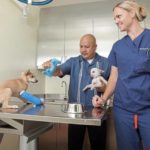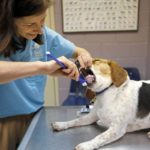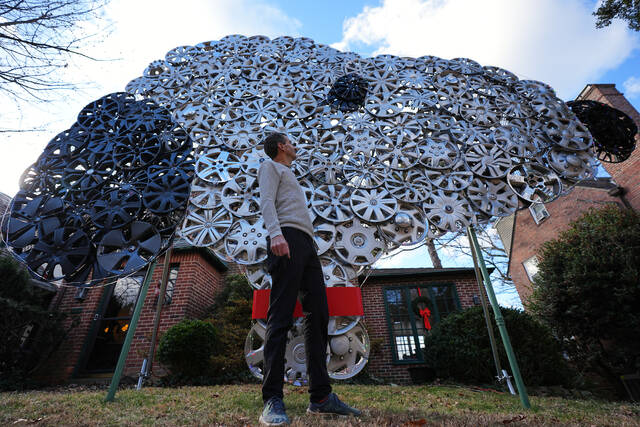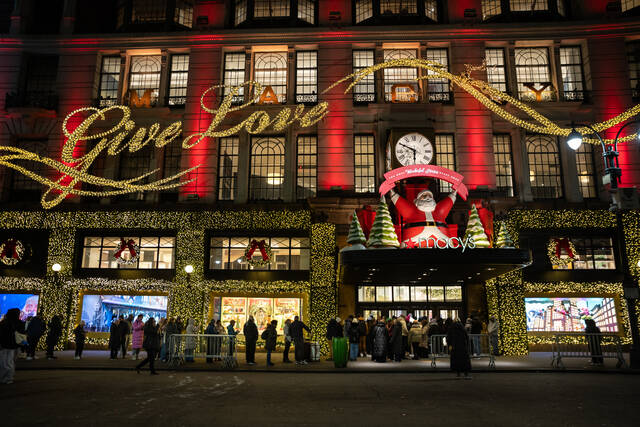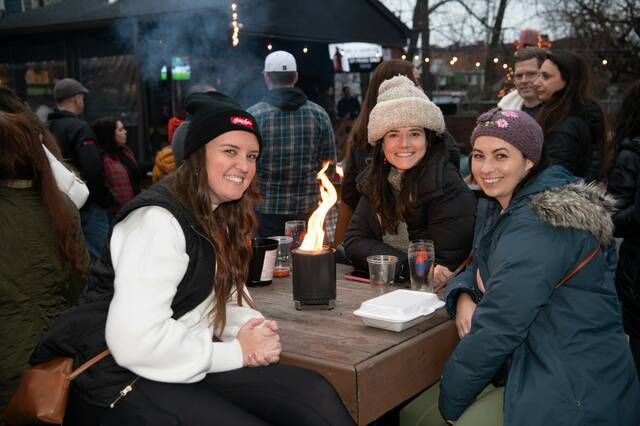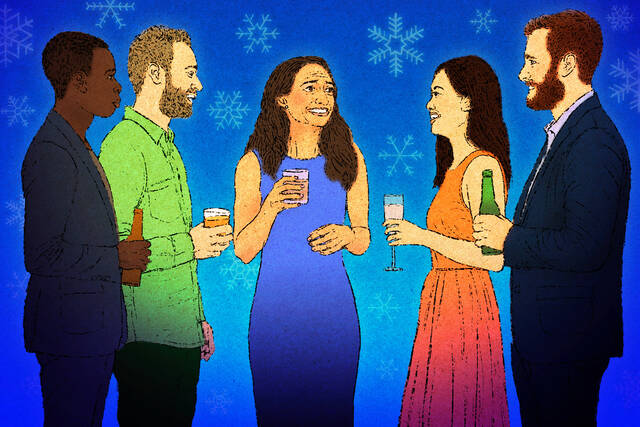Medical professionals treating humans aren’t the only ones having to adjust the way they practice in response to the coronavirus pandemic. Veterinarians have made similar changes in asking pet owners to postpone routine appointments and elective surgeries.
They’re also reassuring pet owners that, though animals are the likely original source of the virus, there is no evidence that it can be passed from pets to humans, says Dr. Henry Croft, owner of Loyalhanna Veterinary Clinic in Cook Township.
Croft says there have been concerns due to a report from Hong Kong that a dog was diagnosed with a covid-19 infection and subsequently died.
According to a March 20 report from the World Small Animal Veterinary Association, the 17-year-old Pomeranian was quarantined after the positive test. It showed no clinic signs of the disease and was released after two weeks when a follow-up test proved negative.
The dog’s death was attributed to unrelated health issues and old age.
“There is no evidence that the dog contracted covid-19, nor that it could have passed the viral cause to another human or animal,” the report said.
“The current evidence still strongly indicates that covid-19 cannot be contracted from pets,” said WSAVA President Dr. Shane Ryan.
“There are coronaviruses that can affect dogs and cats, but this covid-19 is not the same,” said Dr. Harvey Bendix of Norwin Veterinary Hospital in North Huntingdon.
No sloppy dog kisses
One thing pet owners should keep in mind, Croft said, is that a person with covid-19 “could get some on the pet, so there could be viral components on the pet, although we don’t think it could last very long.”
People should practice the same hand-washing regimen after handling a pet that they are using in all circumstances now, said Dr. Constance Matson, owner of Donovan Veterinary Clinic in Ligonier.
“Wash your hands and don’t touch your face, just use good hygienic practices,” Matson said.
Sloppy dog kisses should be curtailed for the time being, too, Croft says: “Try to keep your pet away from your face.”
Bendix said there is a potential for a dog to pick up the virus in its saliva and pass it on that way.
As for seeing patients, Croft said his practice is following directives from the Pennsylvania Veterinary Medical Association.
“We’re limiting that to essential care,” he said. “We’re putting off elective surgeries to a later date — unfortunately, we don’t know when that later date will be. We have to take each case on an individual basis.”
“We’re seeing only the problem cases, and those we’ve seen have been pretty sick,” Bendix said.
“We’re doing emergency procedures and sick visits only,” Matson said. “The concern is to preserve masks and gloves and other medical equipment for human health care.”
More safety measures
Both Croft and Matson said pet owners should call before bringing their animal to a veterinarian’s office.
Croft said his staff will allow one person inside the clinic with a pet, but that person will be asked if they are ill before entering and will have to stay in the waiting room. Pet owners also can opt to stay in their cars and have clinic staff take the pet inside.
Matson’s staff is bringing animals inside, using leashes from the clinic, while owners wait in the car. For medications, the clinic is taking payment information over the phone and delivering them curbside.
Croft said people should arrange in advance for someone to care for pets in case they become ill with covid-19. That should include having a two-week supply of pet food and medications on hand.
A handout from Banfield Pet Hospital recommends these precautions for pet and owner safety during the coronavirus pandemic:
• Avoid contact with wildlife, including those kept as pets.
• Routinely clean and disinfect animal contact surfaces like cages and feeding areas, as well as immediately after contact with high-risk animals, such as wildlife and stray or free-roaming dogs and cats.
• Keep pets away from people infected with the covid-19 virus, and confine pets of infected people to limit spread.
• Call your vet at the first signs of illness, such as coughing, sneezing or lethargy, and keep the pet indoors as a precautionary measure.




